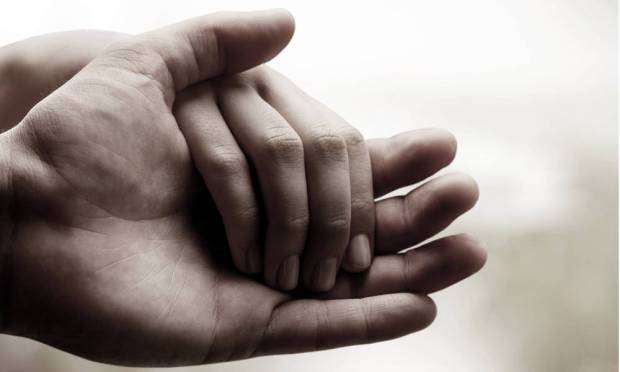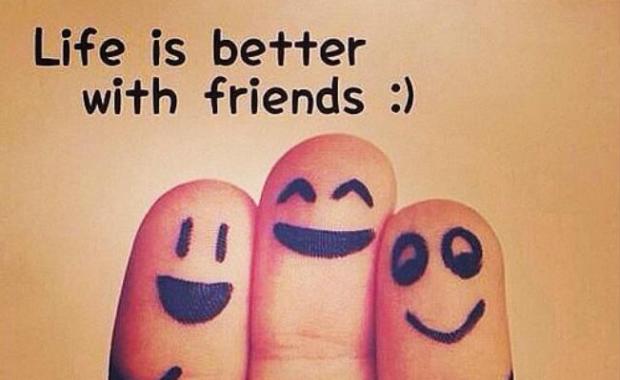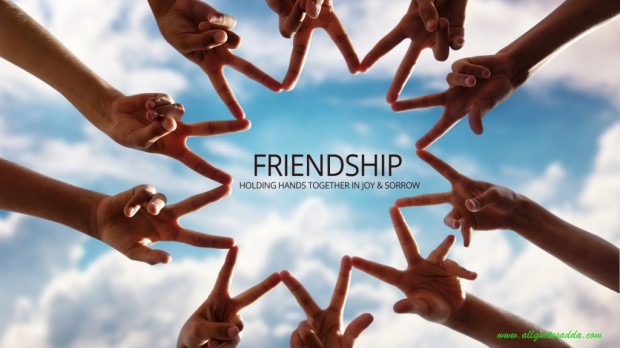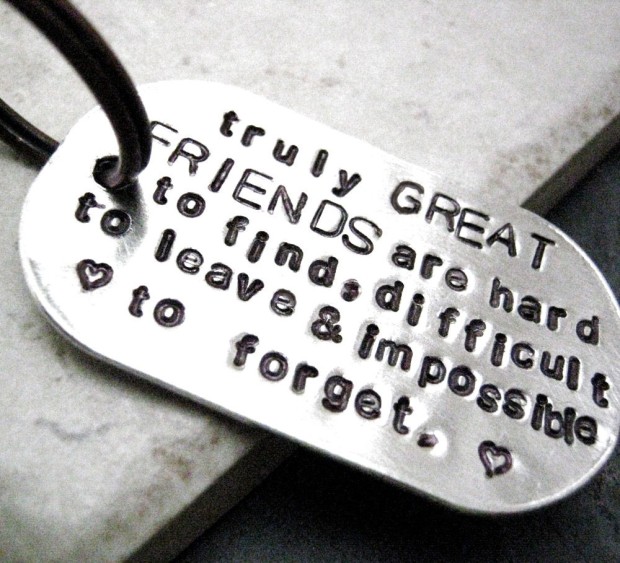In the Words of Marcus Aurelius

“Constantly reflect on how swiftly all that exists and is coming to be is swept past us and disappears from sight. For substance is like a river in perpetual flow, and its activities are ever changing, and its causes infinite in their variations, and hardly anything at all stands still; and ever at our side is the immeasurable span of the past and the yawning gulf of the future, into which all things vanish away. Then how is he not a fool who in the midst of all this is puffed up with pride, or tormented, or bewails his lot as though his troubles will endure for any great while?” (Meditations, 5.23)
This is something I’ve definitely had to work on over the years. Remembering something very simple: even though the people in my life come and go, and it saddens me greatly, I have no control over when death or some other circumstance takes a friend or family member. And as cliché as it sounds, death is really life’s natural conclusion. And death takes us all at some point, and then comes grief. Today is going to be a little different, rather than give you something quoted from the passages of Epictetus or Marcus Aurelius on how we should deal with grief, I’m just going to speak from a result of my own reflections on the matter, and hopefully they line up well enough with Stoicism to be considered such, and if not, I hope you find them useful anyway.
Grief Is Personal

Again, this might sound stupid, but every day you wake up remember that death is a natural part of life. You can no more stop death than you can control whether or not the sun rises. I, like a lot of people, have had a life in which a lot of people have passed away. Some of them were family members, and others very close friends. Each time one of these things happened, I felt the pain of loss very deeply. The thing about me is that I also have depression, and you’ll hear people tell you that grief and depression are different, and they’re right. But what people don’t often talk about is how grief can slide easily into depression for those of us who are well acquainted with it. Often, I started to feel like all of these people left me because I wasn’t loved, or that the world hated me, or when I was still religious that I’ve must’ve done something so egregious to displease God, that I was hated by supposedly the most benevolent being in the entire cosmos. Self-centered, right? That’s not a knock against people who experience these thoughts, I just admitted to having them myself. But did you notice anything? It’s all about your experience of the event.
See, because here’s the thing: we have people while we have them, and the whole point of Stoicism or any other philosophy, is to help us frame our lives in such a way that we can make reasoned choices that are better in some meaningful way. So while we have these treasured people in our lives, I think the Stoics would say to treasure them while they’re here, and to know that you will be okay when they’re gone. You will carry them with you in your memory. There’s another important point I want to bring up about that last bit. We carry them with us in our memory… We often hear people tell us when we are grieving, “person X wouldn’t want you moping around all day.” Usually, these kind of comments are unthinking and just something you’re supposed to say if you care. But really take a long look at what your loved one would want for you. Would they want you to be grieving for months on end? If they loved you, probably not. Would they want you to sequester yourself from the rest of the world? Again, probably not. So what would these people want from you, what do our loved ones want from us? The short answer is this: to go on living. Remember the things that our loved ones value about each of us, and continue to embody those. We have to continue forward. We honor their memory with each breath we take, and with each life we touch. So in a way, we are the ones keeping them alive in our hearts. When we fully consider what our loved one would want, we can then begin to be okay without them here. Hopefully that wasn’t too repetitive, but I think this hits where it needed to. Before I go, I want to share with you a post that I made while taking an online course on stoicism and Marcus Aurelius, on the topic of coping with loss and mortality.
Conclusion: Sharing One Final Thought

Here’s the final piece, as is: “The human soul does violence to itself above all when it becomes, so far as it can, an abscess and a sort of morbid outgrowth on the universe. For to set your mind against anything that happens is to set yourself apart from nature, which subsumes the nature of all other things.”
This is a very useful maxim, and one that I have found to be very true. When dealing with pain of any kind, physical or psychological (stemming from loss or otherwise) there is always a psychological component to it. I’ve had to fairly recent contrasting experiences with grief. One was three years ago, when an uncle I was very close to passed away. And the other was last year when my grandmother passed away.
In the first case, I had a very odd dream where I suppose my mind pieced together the various circumstances of my uncles health, and I had a dream where the doctors on his case were explaining to his wife (my aunt) that he was showing abnormal white blood cell counts and abnormal proteins in the blood and they thought that it might be some form of cancer. When I went to visit him just prior to his death, I told my aunt about the dream and she was surprised that I happened to dream essentially what the doctors had told her without having any direct contact. This made me feel as though I could’ve done something to prevent him from dying if I had said something sooner. And as a result, I allowed myself to descend into a spiral of guilt which led to depression. This is when I decided to seek therapy. After about 11 months, I managed to get my symptoms down to a subclinical level (somewhat humorously, it was due in large part to remembering Epictetus).
In the second instance, my grandma had fallen and as a consequence, had punctured her lung and she was on a respirator for a while. Her healing factor was diminished such that the hope of her making a full recovery was extremely slim and she would likely have been in a great deal of pain, and ultimately she decided on a comfortable death via morphine drip. The last night that she was alive she made a point to tell all of us that she loved us and that she wanted us to continue living our lives to the fullest and not to cry so much for her. In this case, I was reminded that all of our lives, including hers, are essentially on loan. Eventually, they all end. And I was grateful to have had the opportunity to witness her final moments being an act of love rather than some kind of agony. As a result, it left me with a lasting impression of the temporary nature of life, and how that could sometimes be an occasion for joy, or at the very least, a reminder that in death there is a kind of repose.
This lesson helped me internalize what’s going on in the first portion of the excerpt. It also helps me to reframe many of the losses of friends and loved ones that I’ve experienced over the years in a way that allowed me to bear them without an overwhelming feeling of sadness.
Thank you for listening. Until next time.














